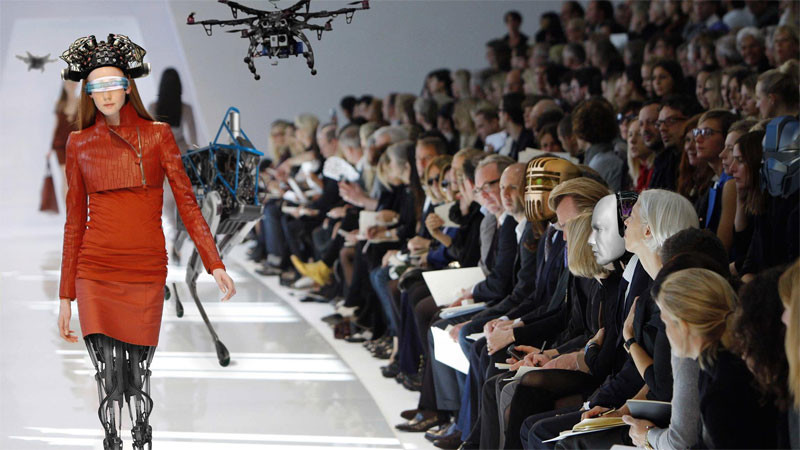But that's not all, unfortunately.
Betabrand has a history of being problematic. The company released what it called "Gay Jeans" -- denim that loses its indigo dye to reveal rainbow colored yarn.
A cute experiment with color that would have been cuter if the name and marketing copy didn't insist on riffing on facets of the gay experience for giggles. Examples include "How do I know these jeans are really gay? Could it just be a phase?", "Some denim really is just born that way" and "Gay Jeans are out of the closet; will they end up in yours?"
Then, there's the "Vagisoft Blanket," which is marketed as being, "so soft, we couldn't name it anything else." Oh, and, in case you're wondering, the blanket is "not as soft as the womb of a marshmallow mermaid."
You can almost picture the group of chuckling dudes who thought vagina jokes were funny enough to brand.
So that's women and gays. Who's next?
Native Americans, apparently.
Despite the lack of evidence that an item called the Comanches Sweater ever existed, it did. Why has it vanished from the interwebs? Because it bore an image of a skull sporting a feather headdress and brandishing a tomahawk while biking.
Wait, they forgot about overweight people! I hear you say.
Worry not.
At its Christmas party, Betabrand showcased a sculpture called “Santa the Hutt,” which is exactly what it sounds like. Some people were offended by the insensitive portrayal of obesity. In an SF Weekly piece called "Santa the Hutt: Fat Joke Isn't Jolly," Marilyn Wann wondered: "What will [young overweight people] think about their future place in society, when they see people lining up next to a caricature of a fat figure?"
Betabrand's promotional text for the installation did not help matters:
"After gorging himself on fruitcake and fortified wine, this slovenly mass of groaning, velvet-ensconsed blubber has relocated to the floor of the Betabrand company store in San Francisco. He now begrudgingly poses for holiday photos with Betabrand customers — if only because he’s too obese to move…If you get to meet him or — God forbid — sit on his vast, undulating lap, we recommend that you thoroughly disinfect afterward. Penicillin is also suggested."
Sigh.
Matt Thier, co-founder of Betabrand, explains how his company uses humor to sell clothes:
“Being funny is at the core of what we do, from product development to marketing tactics, and we don’t just do it for its own sake. We’ve found that products and campaigns with a sense of humor cause people to talk about them more, and to feel like they’re in on the joke.”
What Thier fails to mention are the people who find themselves to be the butt of those jokes.
With all of this Betabrand history in mind, reports that Silicon Valley Fashion Week turned out to be a bit of a farce shouldn't come as a surprise.


